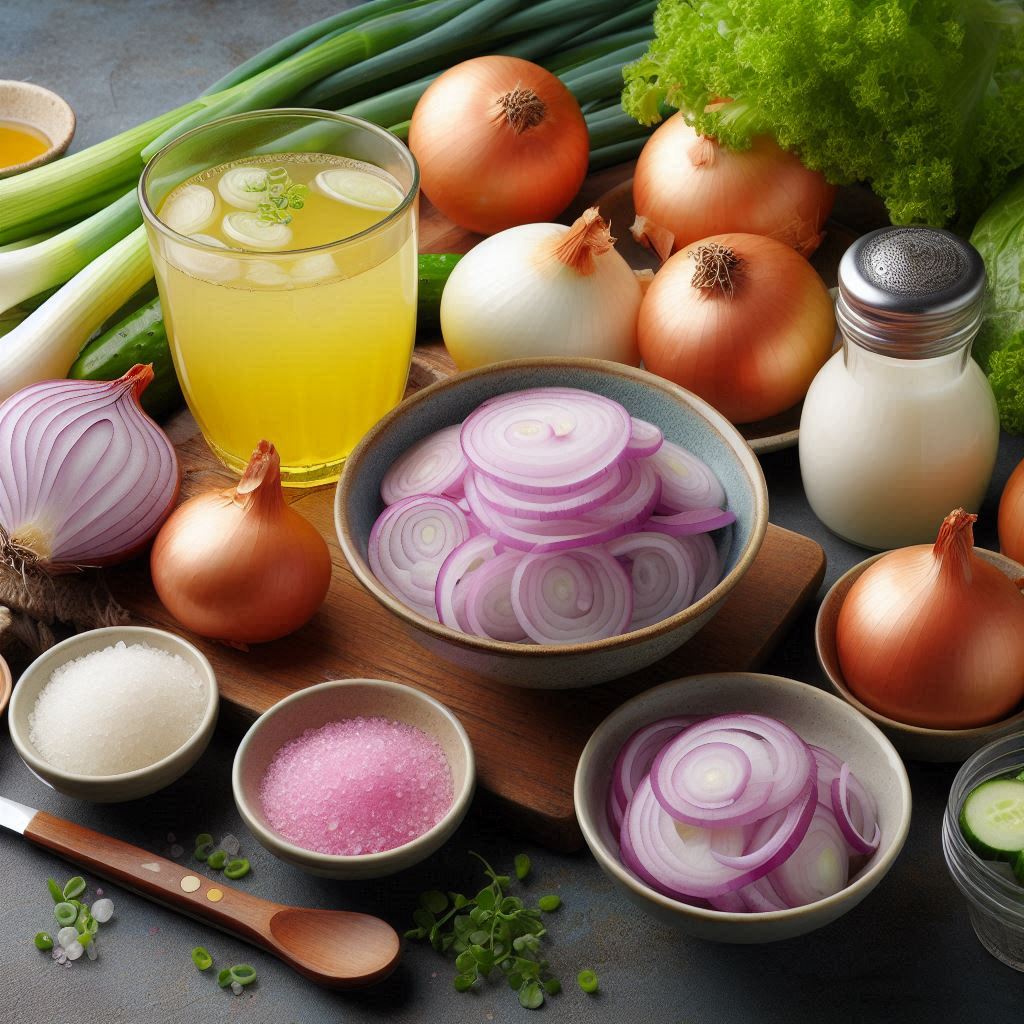통합 검색
통합 검색
- 작성자 관리자
- 조회수 158
Health Benefits of Onions: Why You Should Eat Them Daily
Hello there! Today, I'd like to discuss onions—a common ingredient in our kitchens that offers remarkable health benefits beyond simply enhancing flavor in our dishes. As you may know, onions have much more value than just adding taste to food. According to recent research, consuming just one onion daily (approximately 100-200g) can have significant effects on heart health.

History and Nutritional Value of Onions
Onions are among the oldest food ingredients in human history, used for thousands of years in cuisines and traditional medicine across various cultures worldwide. Ancient Egyptians regarded onions as sacred plants, and records show they were used to treat various ailments in medieval Europe.
Nutritionally, onions are a low-calorie, nutrient-dense food. For a medium-sized onion (approximately 110g):
| Nutrient | Amount | % of Daily Recommended Intake |
|---|---|---|
| Calories | 44kcal | 2.2% |
| Vitamin C | 8.1mg | 20% |
| Vitamin B6 | 0.1mg | 7.7% |
| Folate | 19.3μg | 4.8% |
| Potassium | 146mg | 4.2% |
| Manganese | 0.12mg | 5.2% |
| Dietary Fiber | 1.9g | 7.6% |
Onions are particularly rich in beneficial plant compounds such as quercetin, allicin, and inulin, which provide various health benefits.
Key Health Benefits of Onions
1. Cardiovascular Health Improvement
According to research from the Institute of Food Research (IFR) in the UK, the quercetin found in onions can prevent chronic inflammation that leads to atherosclerosis. Interestingly, while quercetin was previously thought to be absorbed and broken down in the intestines and liver without entering the bloodstream, it was discovered that it actually remains in the outer cells of blood vessels, preventing the accumulation of fat and cholesterol.
Researchers explained that "consuming just one onion per day (100-200g) can have a significant effect in preventing thickening of arterial walls."
2. Cholesterol Level Improvement
In an 8-week clinical trial with obese or overweight women with polycystic ovary syndrome, the group that consumed more onions showed a 25% greater reduction in cholesterol compared to the group that consumed fewer onions. The polyphenol compounds in onions are believed to contribute to this effect.
Additionally, the allicin in onions has been shown to inhibit HMG-CoA reductase in liver cells, reducing cholesterol production.
3. Blood Pressure Regulation
The allicin component in onions releases nitric oxide, which reduces vascular rigidity and has a blood pressure-lowering effect. It also prevents platelet aggregation and promotes fibrinolytic action in blood vessels. According to a study published in 2019, hypertensive patients who consumed onion extract daily experienced an average reduction in systolic blood pressure of 5.5mmHg.
4. Bone Density Improvement
Research examining the relationship between onion consumption and bone health in postmenopausal women over 50 found that those with higher onion consumption had better bone density. Specifically, women who regularly consumed onions had a more than 20% lower risk of hip fracture compared to those who didn't eat onions at all.
5. Anti-Cancer Effects
The allicin component abundant in onions has been shown to combat mutagens, potentially preventing various cancers. An epidemiological study of Swiss and Italian populations investigating the frequency of onion and garlic consumption found that higher intake was associated with up to a 40% reduction in gastric cancer risk.
Research also suggests anti-cancer effects for various other cancers, including colorectal, prostate, and esophageal cancers.
6. Blood Sugar Regulation
Onions are rich in chromium, a trace mineral essential for maintaining glucose metabolism homeostasis. Chromium promotes insulin action and helps regulate blood sugar levels in diabetic patients.
A 2019 study with Type 2 diabetes patients reported that those who took onion extract daily showed an average decrease in fasting blood glucose of 8.6% after 4 weeks.
7. Digestive Health and Weight Management
Onions are rich in inulin, a dietary fiber known as 'natural insulin' that is good for digestion. Inulin acts as a prebiotic that helps beneficial gut microbes grow, aiding in preventing constipation. It also positively affects blood sugar regulation and nutrient absorption.
This dietary fiber helps maintain satiety, preventing overeating, and improves gut health, supporting weight management.
8. Immune System Enhancement
Onions are rich in vitamin C, which helps strengthen the immune system. Additionally, antioxidants like quercetin reduce inflammation and have anti-allergenic functions.
Studies indicate that people who regularly consume onions have a 15-20% lower probability of catching common colds and flu.
9. Antibacterial, Antiviral Effects
The allicin component in onions has been shown to have antibacterial, antiviral, and antifungal properties. Because of these characteristics, onions have long been used in folk remedies to treat infectious diseases.
Laboratory studies show that onion extract inhibits the growth of various pathogens, including Escherichia coli (E. coli), Salmonella, and Staphylococcus aureus.

Ways to Incorporate More Onions into Your Daily Diet
To maximize the health benefits of onions, it's good to include them in your diet in various ways. Here are some delicious ways to enjoy onions:
1. Roasted Onions
Oven-roasted onions develop a sweet and tender flavor, making them an excellent side dish on their own.
Simple Recipe:
- Roast whole, unpeeled onions in a preheated oven at 356°F (180°C) for 45-60 minutes.
- Remove the outer skin and season with olive oil, salt, and pepper.
2. Onion Soup
French onion soup is an excellent way to maximize the health benefits of onions.
Simple Recipe:
- Thinly slice 3 onions and slowly caramelize them in butter for about 30 minutes.
- Add 1 liter of beef broth and simmer for 15 minutes.
- Top with bread and cheese, then briefly bake in the oven to finish.
3. Adding Raw Onions to Salads
Raw onions have a strong flavor but contain the highest levels of vitamins and antioxidants. Red onions are particularly good for adding color and flavor to salads.
Tip: To reduce the strong flavor of raw onions, soak thinly sliced onions in cold water for 10-15 minutes before using.
4. Pickled Onions
Pickled onions can be used in sandwiches, salads, tacos, and various dishes, and can be stored in the refrigerator for several weeks.
Simple Recipe:
- Thinly slice 2 small onions.
- Boil 1/2 cup vinegar, 1 tablespoon sugar, and 1 teaspoon salt, then pour over the onions and pickle for at least 30 minutes.
5. Onion Chips
Onion chips make a healthy snack option.
Simple Recipe:
- Thinly slice onions and season with olive oil, salt, and pepper.
- Bake in a 356°F (180°C) oven for 15-20 minutes or until crispy.
6. Onion Fried Rice
Adding plenty of onions to fried rice, a favorite among Koreans, enhances both nutrition and flavor.
Simple Recipe:
- Finely chop 1 onion and sauté in cooking oil.
- Add rice and other ingredients (eggs, carrots, ham, etc.) and season with soy sauce while stir-frying.
7. Korean Pickled Onions (Jangajji)
You can make traditional Korean pickled onions to use as a side dish.
Simple Recipe:
- Cut 5 onions into appropriate sizes and salt them.
- Create a seasoning with soy sauce, vinegar, sugar, and red pepper powder, then mix with the onions.
- Store in an airtight container and ferment for 3 days.
How to Select and Store Onions
How to Choose the Best Onions:
- Select onions that are firm and have some weight to them.
- The skin should be dry, and the neck area should be well-dried.
- Check for soft spots or sprouting areas.
Proper Storage Methods:
- Store onions in a cool, dry place in a mesh bag or well-ventilated basket.
- Avoid storing them in the refrigerator as moisture can cause them to spoil quickly.
- Cut onions should be stored in an airtight container in the refrigerator and used within 3-4 days.
Precautions
Despite the many health benefits of onions, there are some precautions to consider:
- Drug Interactions: People taking blood thinners or diabetes medications should consult with their doctor before consuming large amounts of onions.
- Digestive Issues: Some people may experience indigestion or gas when consuming a lot of onions.
- Bad Breath: Onions can cause temporary bad breath, so it's advisable to chew parsley or mint leaves or brush your teeth before important meetings.
Conclusion
Onions can truly be considered a superfood beyond just being a simple ingredient. They provide various health benefits, including cardiovascular health improvement, cholesterol reduction, blood sugar regulation, bone density enhancement, anti-cancer effects, and immune system strengthening.
Research showing that consuming just one onion (100-200g) daily can provide significant health improvement effects is very encouraging. Incorporating onions into your daily diet using various cooking methods is a simple yet effective way to maintain a healthy lifestyle.
댓글 0